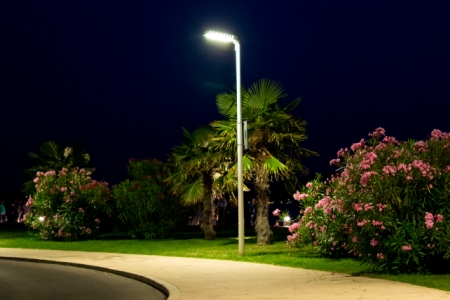Friday, March 04, 2016
 Is your neighborhood well-lit? It may be a well-intentioned safety measure, but it could also be contributing to a restless night’s sleep, according to a recently released study.
Is your neighborhood well-lit? It may be a well-intentioned safety measure, but it could also be contributing to a restless night’s sleep, according to a recently released study.“Our world has become a 24/7 society. We use outdoor lighting, such a street lights, to be more active at night and to increase our safety and security,” says Stanford University’s Dr. Maurice Ohayon, author of the study. “The concern is that we have reduced our exposure to darkness and it could be affecting our sleep.”
Using nighttime data from the Defense Meteorological Satellite Program, Ohayon and a team of researchers assessed how much outdoor light some 15,000 test subjects were exposed to at night. People living in urban areas with populations of 500,000 or more were exposed to nighttime light that was three to six times more intense than those living in smaller towns or rural areas.
In the study, sleep disturbances were found to be associated with nighttime light exposure. People living in more intense light areas were 6 percent more likely to sleep less than six hours each night than people in less intense light areas. People living in more intense light areas were also more likely to be dissatisfied with their sleep quantity or quality than people less intense light areas. People with high light exposure slept less per night than those with low light exposure, according to the study, averaging 402 minutes, or 6.7 hours, per night.
“Light pollution can be found in any sizable city in the world,” says Ohayon. “Yet, excessive exposure to light at night may affect how we function during the day and increase the risks of excessive sleepiness. If this association is confirmed by other studies, people may want to consider room darkening shades, sleep masks or other options to reduce their exposure.”
Source: American Academy of Neurology
RISMedia welcomes your questions and comments. Send your e-mail to: realestatemagazinefeedback@rismedia.com
